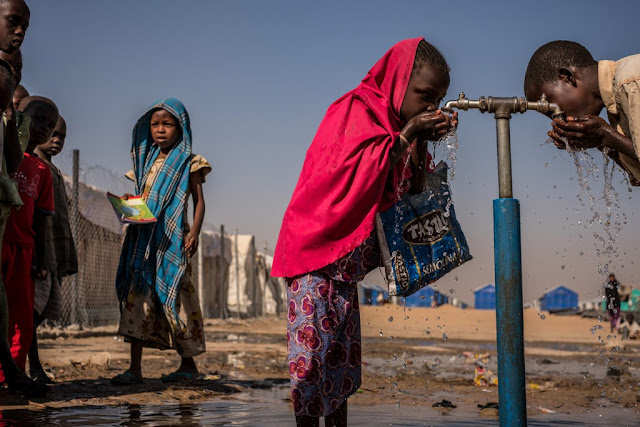Blog summary
With much reluctance, I have to say that this post will be my final blog post! Looking back to when I began this blog, I realise in hindsight that I knew really very little about climate change in Africa and even less so about its impact on Africa's freshwater security... Within three months, however, I have gained a myriad knowledge on the subject - okay I may not be an expert but I certainly know a lot more than I did!
So what are the main things I have learnt?
1. Africa is regarded to be vulnerable to the impacts of climate change. However, the impact on freshwater resources is a lot less clear-cut, with other demographic stress argued to have a much greater impact on the demise of freshwater in Africa. This may be because of data problems (both quality and quantity) that make it hard to predict how water supplies will react to climate change, but (which draws me onto my second point)...
2. Water insecurity is a result of ineffective governance, not inadequate water availability; there is arguably enough water in Africa, with the issue instead being about access rather than availability. Therefore, climate change has the ability to act as a risk multiplier, amplifying current water stresses. It important that Africa addresses its current freshwater insecurities in order to become resilient to the impacts of climate change.
3. Finally, at the beginning my blog, I attempted to focus on Africa as a whole, but I soon realised that I was unable to effectively convey how climate change is likely to affect freshwater security as well as the potential impacts of this, and possible mitigation schemes. After focusing on Ethiopia, and then specifically the Awash River Basin, I was able to gain a much greater understanding of the issue. And this compellingly demonstrates that there is no one-size fits all approach; the solution to Africa's water scarcity and the potential amplification of such stresses by climate change is extremely location dependent. Issues are very contextual and they must be addressed acknowledging this - something I attempted to do with the Awash River Basin.
This may make the problem harder to solve, but when the stakes are so high, it is imperative that this challenge is met - by not only Africa, but the rest the world. The Seventh Millennium Development Goal (to halve the proportion of the universal population without sustainable access to clean and safe drinking water and basic sanitation by 2015) was indeed met. Let's achieve the Sixth Sustainable Development goal (to ensure universal access to safe and affordable drinking water for all by 2030) as well.
 |
| Access to clean water is a human right (UNICEF, 2017) |


Comments
Post a Comment